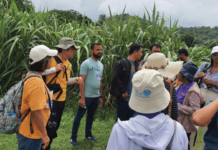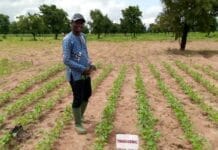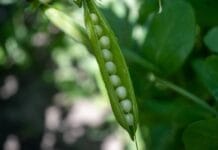AFRICAN governments need to exert more effort to put in place viable legislation and investments that promote agricultural biotechnologies and address food insecurity.
This was one of the recommendations put forward during the Food and Agriculture Organisation (FAO) Regional Meeting on Agricultural Biotechnologies in Sustainable Food Systems and Nutrition in Sub-Saharan Africa held from Nov 22 to 24, in Addis Ababa, Ethiopia.
The African Union Commission (AUC) and FAO urged African governments to proactively employ Science, Technologies and Innovations (STI) – especially biotechnologies – to address food insecurity and malnutrition challenges faced by the continent.
AUC Commissioner for Department of Rural Economy and Agriculture Sacko Josefa Leonel Correa (pix) noted that the application of STI in the agricultural sector is a priority in combating food insecurity and malnutrition in Africa.
“African governments should create a favorable policy environment and invest more resources in order for the region to benefit from the safe applications of proven biotechnologies so as to lift vulnerable communities out of extreme food insecurity,” she said.
Her sentiments were echoed by FAO Assistant Director-General for the Department of Agriculture and Consumer Protection Ren Wang, who remarked that it is imperative for Africa to make biotechnologies, knowledge and innovation available, accessible and applicable to smallholder farmers to help them maximise their agricultural productivity while keeping the environment healthy and sustainable.
Ethiopian Minister of Agriculture and Natural Resources Eyasu Abraha revealed that Ethiopia is building a capacity to extensively use biotechnologies to enhance the production of crops and animals to support the country’s efforts towards food self-sufficiency. He noted that 80 percent of the country’s population depends on subsistence agriculture to provide food and income for their families.
The meeting was attended by over 200 representatives of governments, intergovernmental organisations, civil society organisations, private sector entities, academia and research institutions in the region.
It built upon FAO’s international symposium, The Role of Agricultural Biotechnologies in Sustainable Food Systems and Nutrition, which took place from February 15 to 17, 2016 in FAO Headquarters, Rome.











